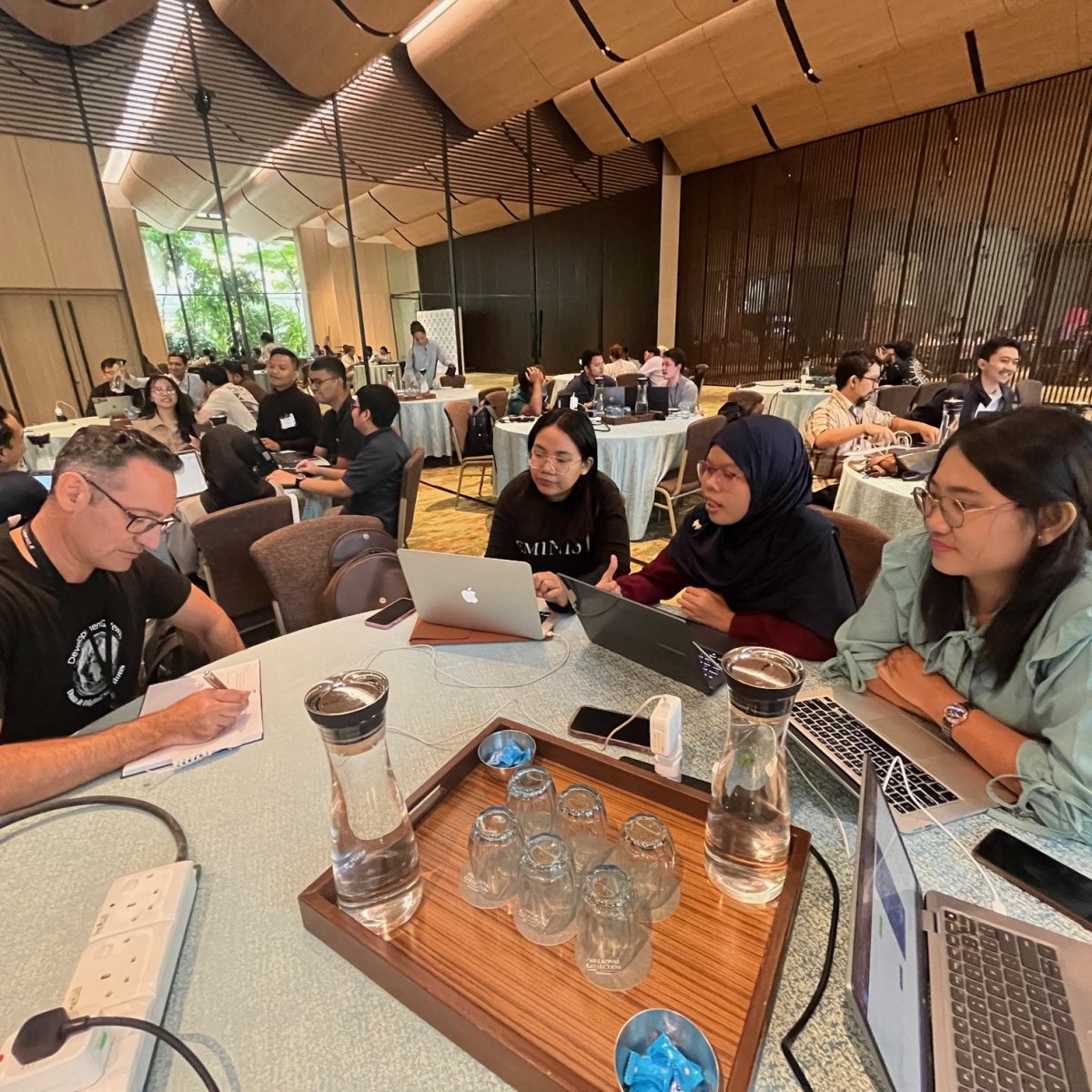
Three “Hacks” in Advancing Anti-Corruption Work To Strengthen Accountability
Since partnering with Accountability Lab (AL) on HackCorruption in 2023, staff from Development Gateway: An IREX Venture (DG) and AL have mentored teams from the regional hackathons organized by AL’s HackCorruption initiative, which is aimed at leveraging innovative digital tools to identify and fight corruption. After serving as mentors to teams selected from the regional hackathons, DGers Gabriel Inchauspe and Kelley Sams along with AL’s David Sada have identified three “hacks” to mentoring anti-corruption change-makers and ultimately, furthering transparency and accountability through the creation and use of digital tools.
Supported by the Bureau of International Narcotics and Law Enforcement, U.S. Department of State and the USAID Countering Transnational Corruption Grand Challenge for Development and in partnership with the Center for International Private Enterprise and DG, HackCorruption is led by AL and aimed at identifying and supporting talented individuals to build innovative digital solutions to combat and prevent corruption. These change-makers come from public institutions, civic tech, civil society organizations, and activist arenas.
Participants in a regional HackCorruption hackathon apply as groups or individuals. Each individual selected to participate is placed in a team, and groups that apply together form their own team. During the hackathon, teams are asked to focus on one of three anti-corruption problem sets: 1) budget and ownership transparency, open contracting and transparency of public procurement; 2) digital citizenship to constrain corruption; and 3) climate finance transparency. Participants then develop an innovative digital tool to address a specific area of the selected problem set.
Beginning in June 2023, DG and AL began mentoring teams selected by an external panel of judges during the South Asia regional hackathon, with mentorship continuing for six months after the event. The goal of the mentorship is to support these teams in developing the solutions proposed during the hackathon, support their anti-corruption efforts overall, and help build the capacity of these change-makers. From this mentorship, Inchauspe, Sams, and Sada identified three hacks in advancing anti-corruption work regionally and transnationally.
1. Create a culture of anti-corruption
By organizing these hackathons, HackCorruption aims for teams to develop technical solutions and approaches that combat corruption and that can be implemented and scaled. However, beyond these digital tools, the heart of the mission is to strengthen the culture of anti-corruption in the regions where the hackathons are held as well as transnationally. The mentorship team found that they need to remind mentees (and themselves) that while political, technical, or resource limitations can ultimately prevent teams from scaling their tools, strengthening anti-corruption culture is the most fundamental success in fighting corruption. After all, building a culture of anti-corruption work creates an environment that allows other anti-corruption efforts and initiatives to exist and flourish.
2. Clearly define the project scope and keep returning to it
Inchauspe, Sada, and Sams found that teams would sometimes deviate from the original idea they developed in the hackathons, as they faced roadblocks or problems. While projects can be adapted in response to barriers, the mentorship team encouraged their mentees to closely consider how their project was changing and why. Inchauspe, Sada, and Sams encouraged teams to ensure that their new ideas still met all requirements for the project (e.g., the solution had a transnational application as well as a regional or local one) and appropriately contributed to anti-corruption efforts (and wasn’t simply a cool technical tool).
As projects advanced or were changed, the mentorship team also helped the winning teams ensure that they were collaborating with everyone with whom they needed to be working. For example, some teams weren’t as strong in technical development skills. Depending on the scope of the project, the mentorship team would advise these teams in subcontracting with technical developers. Inchauspe, Sada, and Sams ensured their mentees retained ownership of their projects by encouraging them to circle back to the original ideas proposed during the hackathon and communicating their vision clearly to subcontractors.
In addition to helping teams as they worked with partners, the mentorship team also ensured their mentees advanced their project management skills. After seeing one or two team members move forward with certain types of work while others didn’t know what to do, Inchauspe, Sada, and Sams encouraged teams to have different tasks assigned to each team member at any given time in order to ensure all aspects of the project were moving forward.
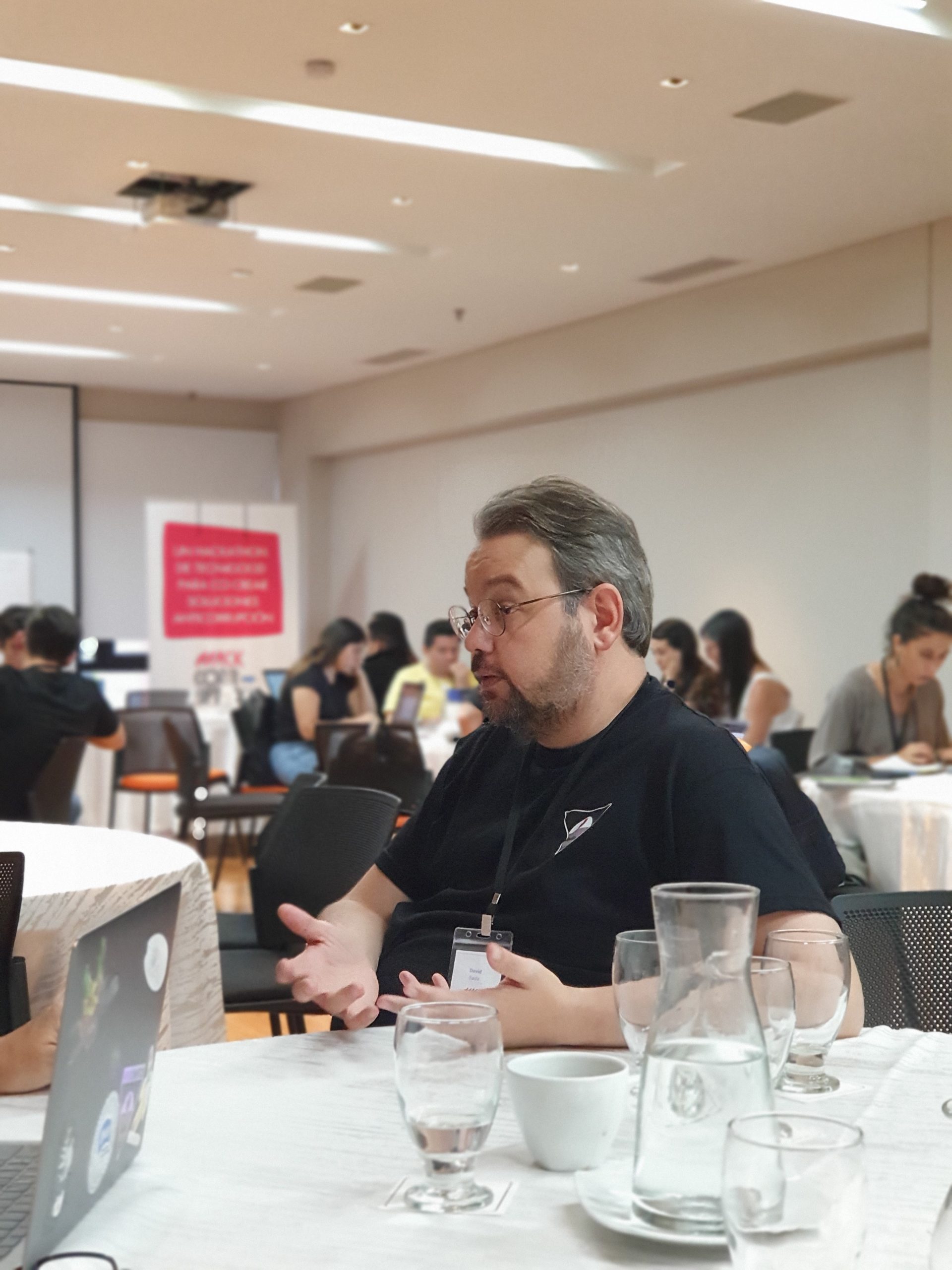 David Sada at a HackCorruption event.
David Sada at a HackCorruption event.3. Be open minded and aware of contextual differences
Just as the mentorship team had to ensure their mentees were approaching their project with technical, project management, and analytical skills, they also had to ensure that their own experiences and backgrounds weren’t limiting their mentees.
Because each winning team was composed of individuals with different personalities who were working in a specific cultural and political context, the mentorship team learned to embrace these differences. Regarding personality differences, the mentorship team found that it was essential to identify how best each team member works, what excites and motivates them, and what they need to successfully move forward with their ideas. These discoveries were made by being in close communication with each team member and matching these discoveries against the needs of the team as a whole.
To embrace the constraints of different political contexts, the mentorship team encouraged their mentees to understand that whatever steps can be taken in a non-receptive political system is a step toward cultural—if not institutional—capacity building for anti-corruption work. Circling back to the first hack identified above, Inchauspe, Sada, and Sams found that the most important thing isn’t if the teams are successful in implementing their technical solutions, but it’s that they keep going despite any barriers they may encounter. As part of this process Inchauspe, Sada, and Sams emphasized the need to understand the context where the solution would be implemented and the importance of adapting to what users really need.
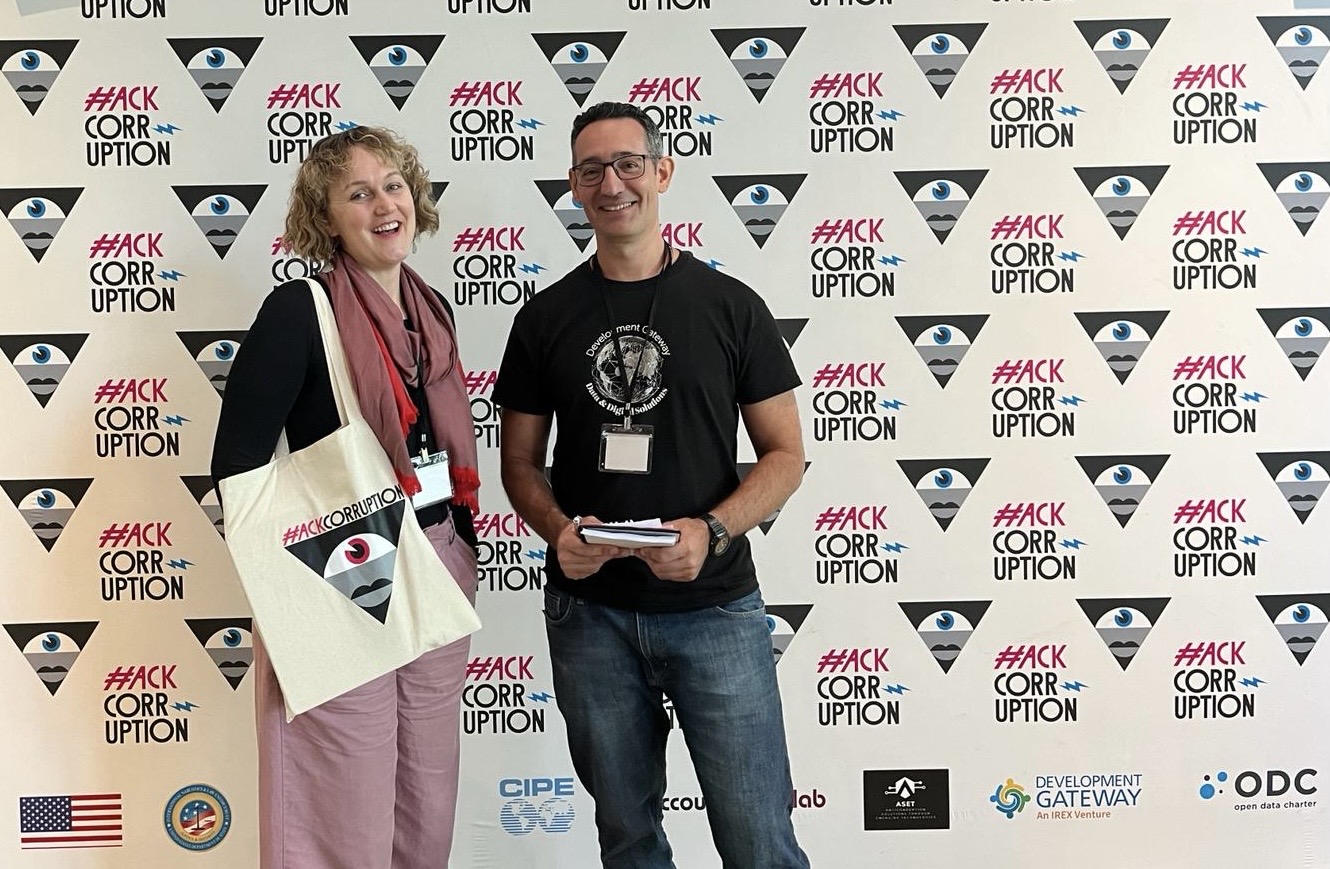
What’s next?
In addition to offering mentorship to the selected teams, DG and AL will continue their collaboration by joining conversations at the policy-level on digital tools and corruption as well as developing an AI tool that DG plans to register as a digital public good and can be used by those wanting to build anti-corruption solutions. With the most recent hackathon in SE Asia, climate financing played a particularly important role, and DG and AL look forward to joining broader conversations about how digital tools can contribute to preventing and combating corruption related to climate financing efforts.
Share
Recent Posts
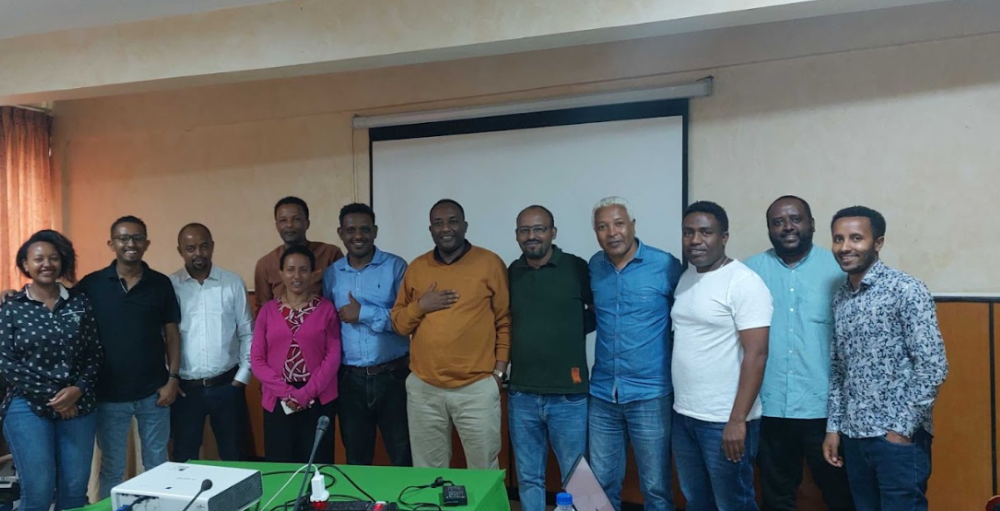
aLIVE Program Reaches Milestone: Livestock Data Standards Endorsed by Ethiopia’s Ministry of Agriculture
In early 2024, the "a Livestock Information Vision Ethiopia" (aLIVE) governing committee endorsed a comprehensive set of standards to guide the collection, storage, and maintenance of livestock data in Ethiopia (i.e., a data standard). The data standard specifically focuses on standardizing data on cattle, sheep, goats, and camels in the country. The National Livestock Data Standard document contains standardized data sets for national animal data recording, animal disease, diagnosis, treatment, vaccination recording, animal events recording, location, and other additional attributes.

Custom Assessment Landscape Methodology 2.0 – Reflections After Five Years
Our new white paper re-introduces our flagship methodology, Custom Assessment Landscape Methodology (CALM), to help our partners, collaborators, and teammates better engage with a flexible and adaptive assessment methodology.
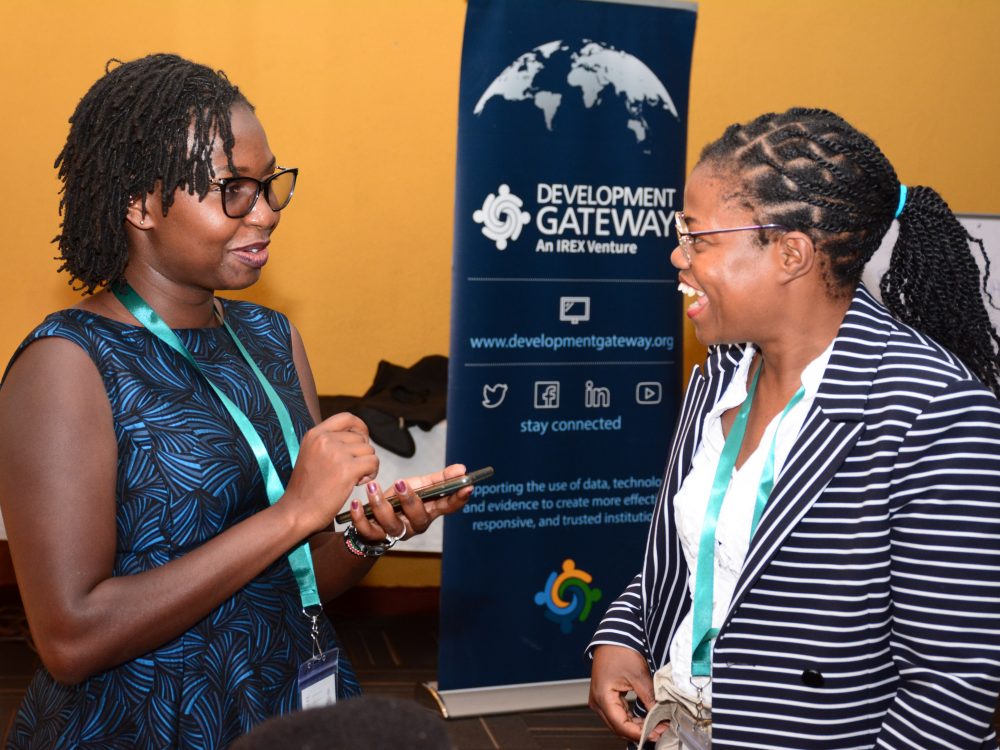
Équilibrer les besoins : Trois idées pour construire une approche de co-conception dans plusieurs pays
En réfléchissant à la première année du programme DaYTA de DG, nous avons identifié trois idées sur la meilleure façon de co-concevoir avec des parties prenantes représentant plusieurs pays.